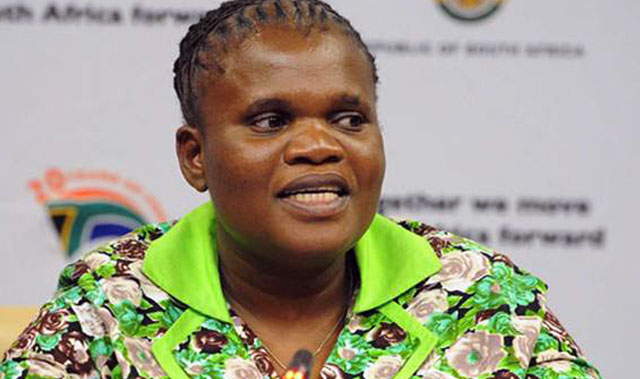
Two black-owned set-top box manufacturers are headed to formal arbitration proceedings — and possibly to court — after the government agency responsible for procuring decoders for South Africa’s digital television migration project halted orders.
CZ Electronics, which is 93% black owned, and Leratadima, which is 100% black owned, have now entered an arbitration process with the Universal Service & Access Agency of South Africa (Usaasa) in an effort to resolve the impasse.
Neither company is prepared to comment on the arbitration proceedings as they have agreed to confidentiality, but it is understood from well-placed industry sources with knowledge of the situation that both companies have been left seething, accusing government of abandoning its stated commitment to supporting black-owned electronics manufacturing businesses.
Leratadima has been forced to cut hundreds of jobs because of Usaasa’s decision, the sources said. The company is also believed to be sitting on millions of rand worth of components it ordered from overseas to make the boxes, which it now can’t use.
According to the industry sources, the companies have come under financial pressure, and as a result have been slow to pay their suppliers.
It’s understood that CZ Electronics is sitting on tens of thousands of unsold set-top boxes, made for Usaasa in terms of the order and for which the agency has not paid.
Usaasa has been mandated by government to procure the boxes, which will be provided free to 5m indigent households in South Africa so that they can continue receiving terrestrial television once analogue broadcasts are terminated.
Analogue switch-off, which should have happened in 2015 in terms of a government agreement with the International Telecommunication Union (and agency of the United Nations), is now only expected to take place towards the end of the decade.
Leratadima, frustrated that Usaasa has allegedly failed to engage with it in the arbitration process, may even be considering court action, it has been established.
Sources say the two manufacturers are owed hundreds of millions of rand in terms of their supply agreements with Usaasa. Both feel aggrieved that government, which had planned to use the set-top box subsidy as the cornerstone of a flagship programme to support and grow black-owned electronics manufacturers, is now putting the squeeze on them by halting the contracts.
Usaasa has suspended the contracts with the manufacturers pending the outcome of a constitutional court battle between communications minister Faith Muthambi and e.tv, which is set to be heard on 21 February.
The minister is challenging a supreme court of appeal judgment, handed down in 2016, which in effect found that government was wrong not to allow encryption of terrestrial digital broadcasts.
MultiChoice, which supports Muthambi’s court action, has long been engaged in a high-stakes legal and commercial battle with e.tv over encryption, with the pay-TV operator arguing that providing encryption technology in the free government boxes would amount to an unfair subsidy to prospective rivals which could use the boxes to launch commercial services that compete with DStv.
Sources say that both Leratadima and CZ Electronics say that the suspension of the set-top box contracts isn’t necessary because, if the constitutional court finds in favour of e.tv, the boxes can simply be upgraded “over the air” to support encrypted signals and do not need to be scrapped or recalled.
Usaasa CEO Lumko Mtimde confirmed in an e-mailed response to questions that the parties are in arbitration, but declined to comment in detail, saying the agency is “bound by the confidentiality of arbitration proceedings”.
However, Mtimde said the supreme court judgment “could be interpreted to mean a change in a policy in terms of which Usaasa is procuring the set-top boxes”.
“Usaasa has been advised by senior counsel to halt production pending finalisation of the constitutional court hearing.”

He said that in terms of the agreements with the manufacturers, Usaasa is entitled to stop the contracts midway if, among other reasons, there is a “change in government policy and/or regulatory regimes, as it seems to have been the case in this instance”.
Mtimde denied Usaasa is intentionally harming black-owned businesses through its decision.
“On the contrary, Usaasa is established to support underserved areas and black empowerment. It is further compliant with our government policy and laws regarding black economic empowerment,” he said. “We fully support government’s initiative for empowerment of previously disadvantaged persons.
“Usaasa is, however, constrained to perform its statutory duties in terms of the legislation and policies of the environment in which it operates.”
He said the contracts with set-top box manufacturers remain in force, with “full-blown production on hold pending the finalisation of the constitutional court case”. He added that the agency will “review the situation” once judgment has been handed down.
- This article was originally published in the Sunday Times of 5 February 2017

